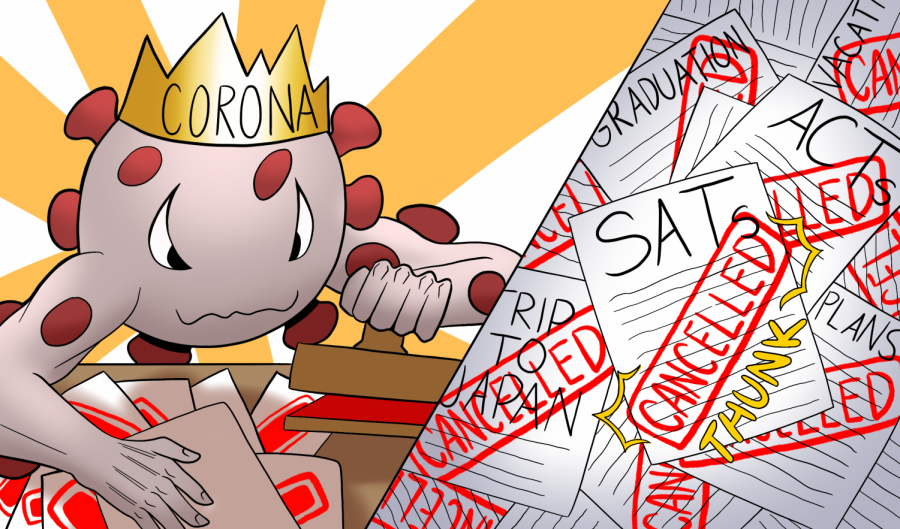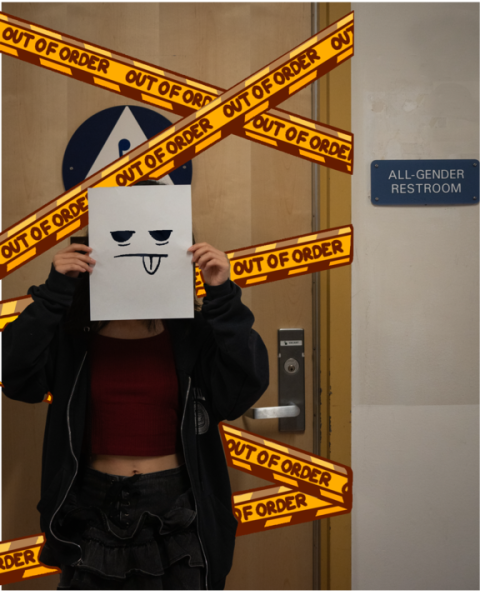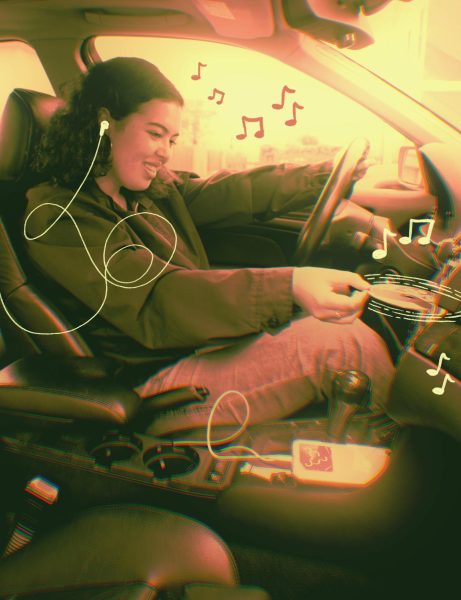How the coronavirus changed my perception of intelligence
SAT and ACT tests across the country have been cancelled due to the coronavirus.
As I stare at the paper on my desk, my pencil clutched tightly in my hand, I feel my pulse begin to quicken. Classmates are frantically scribbling away all around me while I rack my brain for an answer to the question before me. I studied this, why can’t I remember? I ask myself. Argh. I hate tests. I don’t work well under pressure, especially when I have to watch the time tick away. And, with my SAT fast approaching, I knew I had to face the inevitable and learn how to cope with the stress of timed exams. After all, my future could depend on a singular four digit score.
Or could it?
I first heard rumors around the validity of the SAT and ACT during my sophomore year. While scrolling through the news or clicking through social media, it was hard to avoid articles questioning whether these standardized tests were a fair assessment of a student’s abilities. Many argued that the tests also had disadvantages for students of color and low income families. I knew my family would not be paying for tutors or prep classes to get higher scores, resources which many of my peers would probably utilize.
Initially, I was unsure of what this all meant for me. My high school course of action had always seemed written in stone: do well in classes, study for the SAT, and hope for decent scores. As the Covid pandemic raged across the country, and more and more test dates were cancelled until further notice, I felt my anxiety of the unknown begin to creep in. Eyeing with guilt the SAT study material on the top shelf of my bookcase, I was left wondering: should I be studying for a test that may not hold any real value, if it even happens at all? What would my application look like without these scores?
The decision that many colleges made to make the SAT and ACT optional left me questioning the true importance of these tests. I realized that somewhere along the way school for me became less about learning and more about trying to achieve the best possible numbers. Amidst the pressure of the competitive Lowell mindset, it’s difficult to separate a disappointing test score from one’s perceived intelligence. Slowly however, I’ve learned to reject the concept that the outcome of a test equates to my self worth.
August arrived, and thus began my abnormal junior year of high school: completely off campus and online. Though I have every intent on keeping my grades the best they can be, my mind begins to stray away from obsessing over test results on next year’s college application. I engage in classes from a distance while balancing new passions and hobbies, finding sources of contentment that in no way include numbers on a scorecard
I’ve come to appreciate and admire the decision of many universities to disregard this questionable facet of the application. A student can’t be defined by a four digit score alone. As colleges remove the emphasis on tests, they will fully see each applicant as a person made up of unique assets and attributes. Their recognition of those values beyond the numbers helps me realize that I’ve always been more than my scores all along. Therefore, even if I do end up taking the SAT, I won’t consider myself a failure should I not prove to be a good test taker.
So the next time I sit in an exam room and my heart begins to race at the sight of the ticking clock on the wall, I’ll remind myself that this moment won’t determine my whole future. Intelligence doesn’t always look like a check-mark besides a correct answer or a hundred percent at the top of a page. Intelligence comes in all forms, found in the creative side of some or the logical side of others. It’s seen in self awareness and understanding, and how we apply problem solving to our everyday lives. We are constantly learning and changing and growing wiser and we should not let test scores validate our worth. With this in mind, I’ll take a deep breath, clear my head, and begin the exam.











